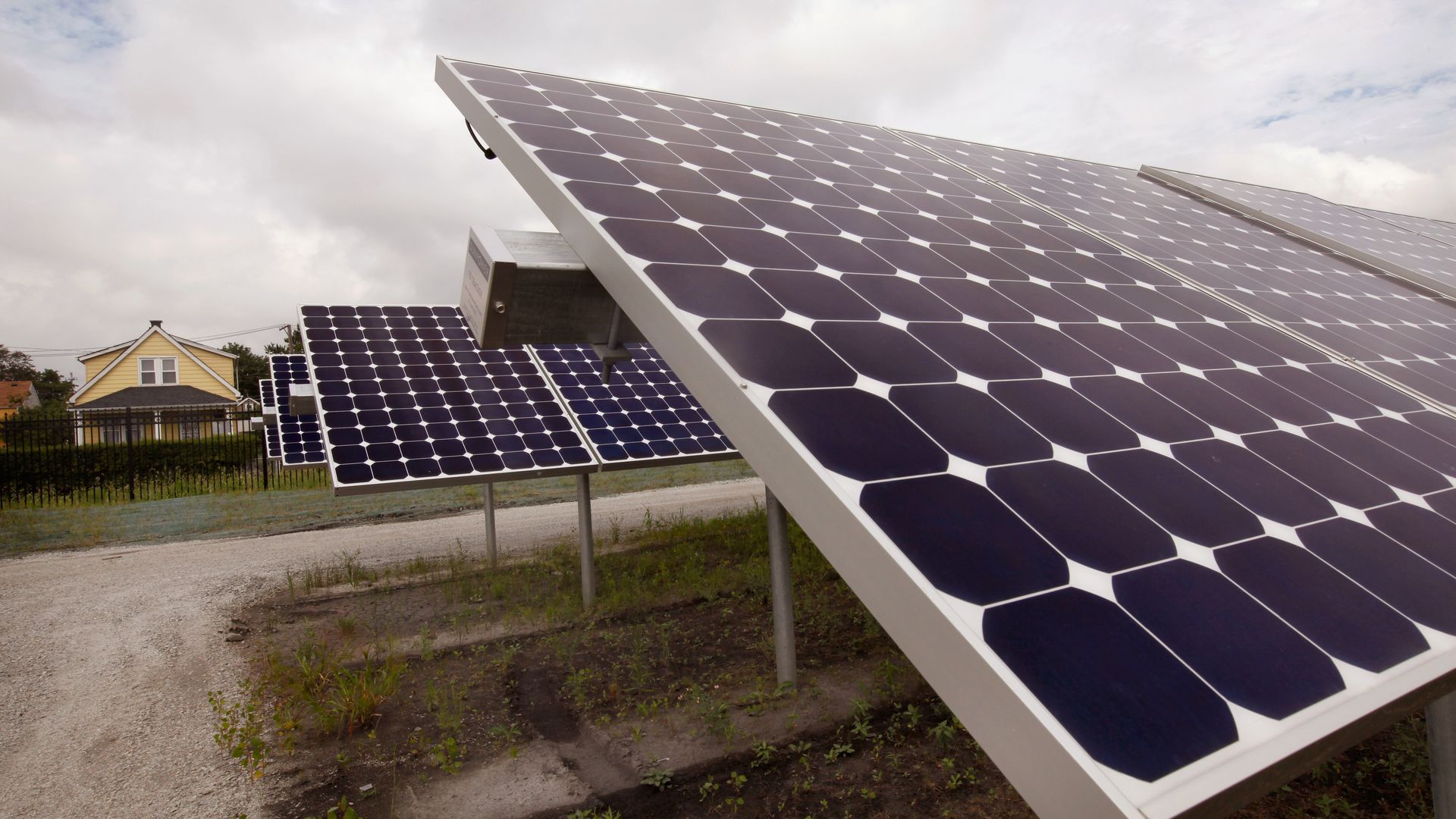Development and deployment of solar farms continue to increase across the U.S., driven by tax incentives, falling costs and renewable energy mandates for electric utilities. Solar farms are built on farmlands that no longer generate enough revenue or have been abandoned, with some farmers entering into leases of 15–20 years with local utilities and others selling the land directly.
The big picture: Farmers who enter such leases benefit from greater revenue and stable income from rents, while utilities and solar companies benefit from access to cheap land. Although this seems like a win-win for all, some neighbors are getting upset at the change in landscape.
The background: Farmlands offer flat, well-defined properties without the risk of floods, making them well suited to solar farm installations. In Illinois, the Future Energy Jobs Act set targets for the state to get 25% of its electricity from renewables by 2025. This has spurred a great deal of interest from private developers both in and out of state.
Yes, but: Residents and landowners around these planned solar farms are expressing concerns. In addition to being unsure about the benefits and long-term impacts, they're worried about the lengthy construction timeframes — some projects will take years to complete — and the reduction in property values that may result in the surrounding land. (Solar farms are not generally considered aesthetically pleasing.)
Similar disputes are occurring in North Carolina and Florida. And in New York, residents are complaining about out-of-state companies applying for permits without the landowners' consent, forcing the state to require that developers show landowner consent as part of the project review.
What’s next: Local zoning and planning boards will typically hear concerns and develop ordinances to establish rules for site acquisition and construction, though it's unlikely they'll be able to satisfy all parties. But despite setbacks and delays, the environmental and financial benefits of solar on U.S. farmlands will most likely lead to more developments.
Maggie Teliska is a technical specialist at Caldwell Intellectual Property Law, an intellectual property law firm. She is also a member of GLG, a platform connecting businesses with industry experts.




 by
by